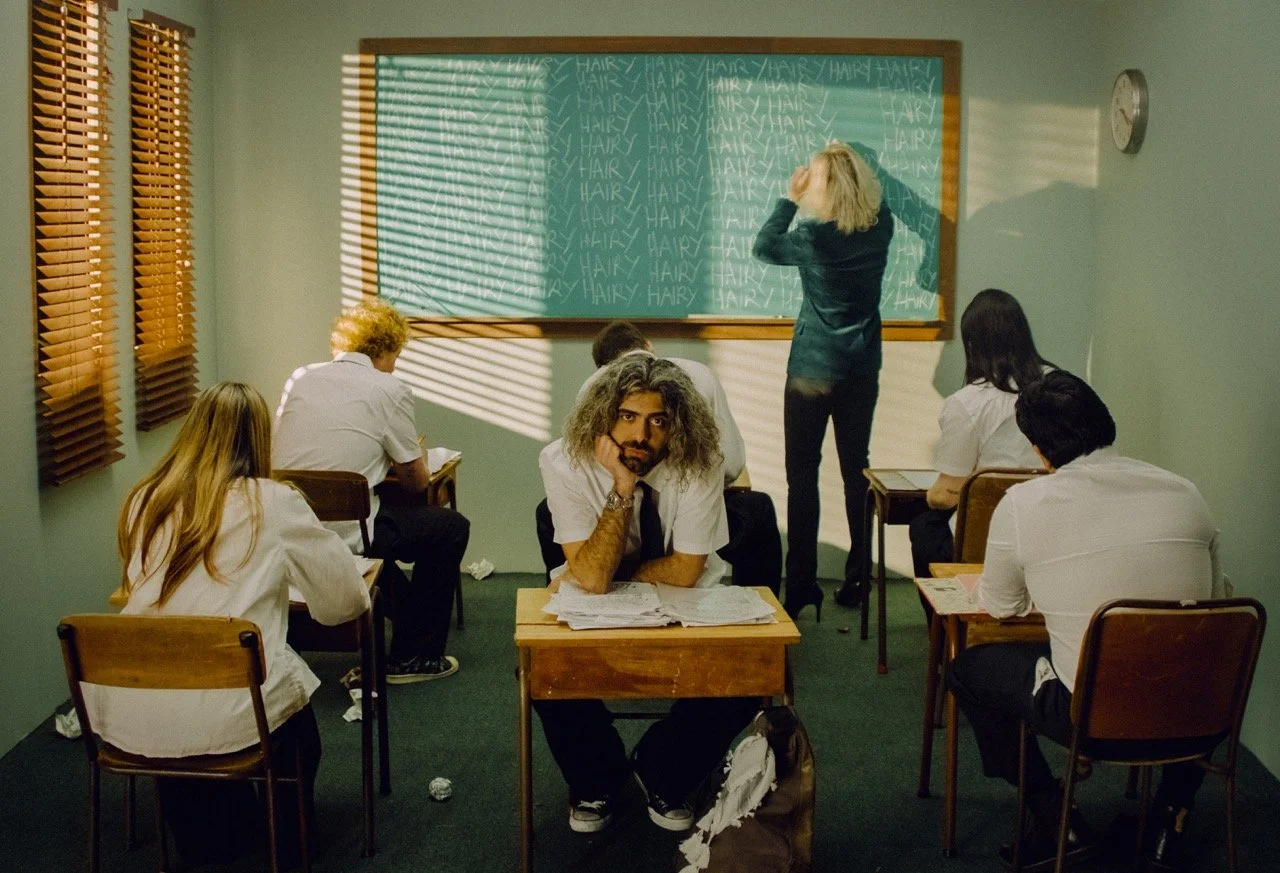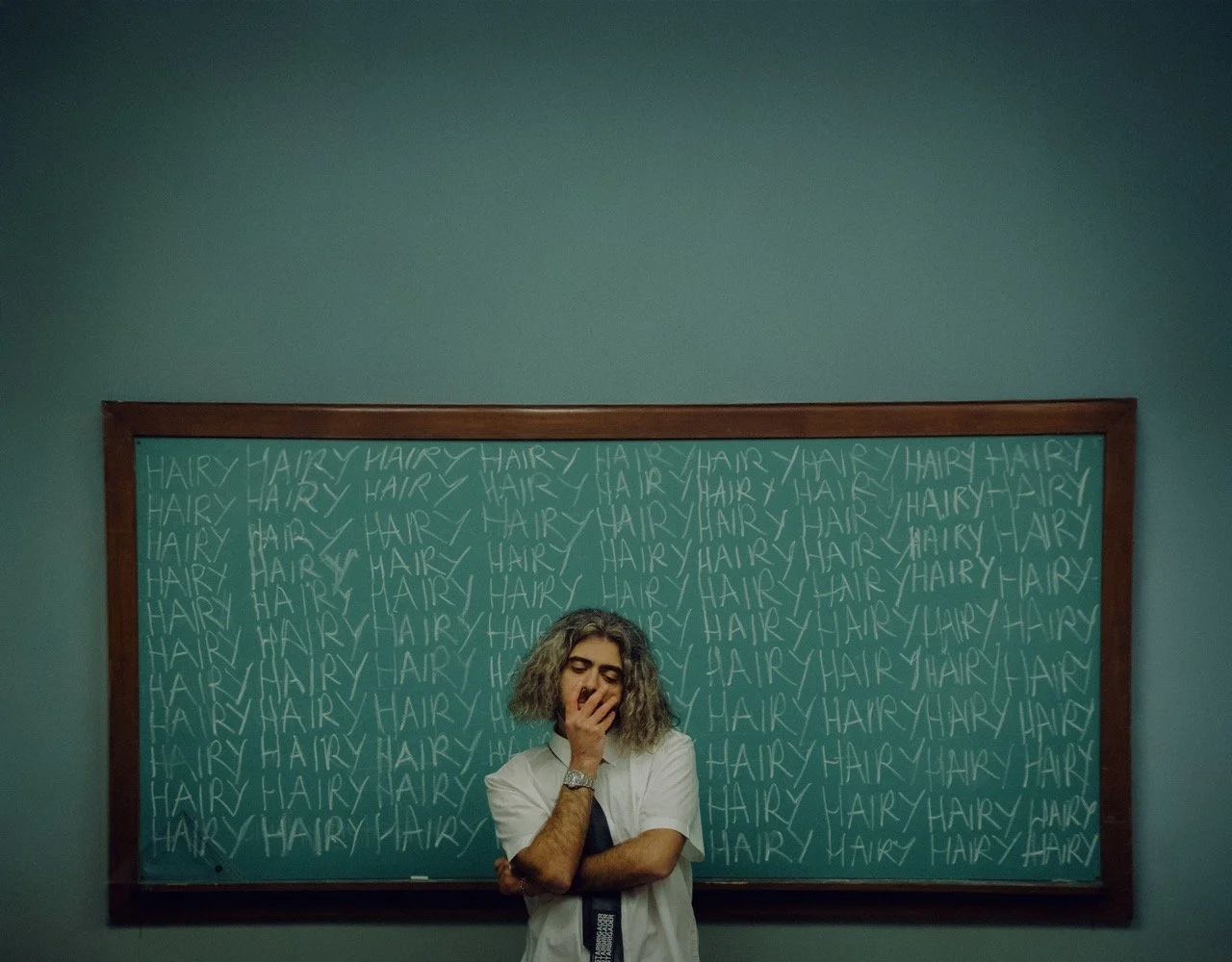WHO SHOT SCOTT and His Tell-All Artistry
There’s a certain honesty that runs through everything WHO SHOT SCOTT creates and it’s the kind that doesn’t ask for attention but demands to be felt. The Auckland-based artist and producer, born Zaidoon Nasir, has built a world where pain becomes power and vulnerability is the loudest sound in the room.
After a monumental year that saw him nominated for two APRA Silver Scrolls, tour Japan, and land a global sync for Borderlands 4, he’s entering a new era defined by reflection and rebirth. His latest single, FRENCH FEVER, captures that spirit perfectly. An explosive, groove-heavy track born from a deeply personal story of trauma, resilience, and transformation.
When we sat down with WHO SHOT SCOTT, he spoke about the duality of growing up between Iraqi and New Zealand cultures, the intuition that guides his art, and how turning pain into beauty has always been his truest form of freedom.
Cake The Mag: For someone hearing your name for the first time, who is WHO SHOT SCOTT and what does the name represent?
WHO SHOT SCOTT: WHO SHOT SCOTT is the home for all of my creative ideas, it’s the space where I can be completely free. Free of conformity, free of ideology, just pure expression. That’s what it means to me.
For someone else, the name might represent something like rebirth, a shedding of the old and an emergence of something new. I’ve said it before, but I’m not ‘Scott’ I’m Zaidoon, or my friends call me Zee. The moniker WHO SHOT SCOTT ties deeply into my story, my journey with art and music, my past relationships, and ultimately, the process of transformation and rebirth that’s shaped who I am today.
You grew up between cultures – Iraqi roots, New Zealand upbringing. How did that shape your identity and the kind of stories you tell through your music?
Yeah, it definitely shaped me both as a person and as an artist.
Growing up between New Zealand and Iraqi culture gave me a real sense of duality, but also isolation. I always felt a bit like an outsider, like I didn’t quite fit in anywhere. Because of that, I gravitated toward art really quite young. Music and film felt like my friends, my way of connecting with the world. That deep relationship with art from such an early age built the foundation for everything I do now.
When I write music today, I often look back at those moments of feeling alienated or misunderstood. Even the stories I tell in my current life are still shaped by those early experiences – it’s all connected. The way I see it, that upbringing affected me from the root, and the art I make now is the fruit of that.
What artists or sounds first shaped your world when you were growing up?
When I was growing up, my mum played a lot of Arabic music around the house, along with The Beatles, Bee Gees, and ABBA. That was the soundtrack of my childhood.
But the first time I really developed my own relationship with music was when 50 Cent dropped Get Rich or Die Tryin’. That was a life-changing moment. It was the first piece of music I discovered myself, not something passed down from my mum, and it completely blew my mind. I didn’t understand why it sounded so incredible at the time, but now as a producer, I know it was likely the production by Dr. Dre – super clean, polished, so huge sounding.
I still remember hearing those songs for the first time, just stopping what I was doing (probably playing basketball or something), walking up to the speaker, and standing there in a trance. After that, I started diving deeper into 90’s hip-hop – Mobb Deep, A Tribe Called Quest, Nas, and around the same time, I was playing a lot of skateboarding games like Tony Hawk’s Pro Skater. That’s where I got introduced to punk rock and alternative rap.
So, my early influences became this mix of Ramones, Sex Pistols, Gang Starr, and Quasimoto, all mixing in a pot together like soup.
Photographed by Connor Pritchard
FRENCH FEVER is so upbeat but the lyrics and story are extremely heavy (quite on brand for you). Is the contrast important to your storytelling?
I wouldn’t say it’s something I intentionally plan out.
My process is really intuitive, I create from feeling and try to trust that completely. I don’t like to over-intellectualise things like storytelling or contrast. What usually happens is I’m just making a lot of music, staying as honest and sincere as I can in what I’m saying and how it feels. And then, at some point, something clicks.
It’s hard to explain, it’s not logical or theoretical, it’s more like this spark of intuition where everything suddenly aligns. With FRENCH FEVER, for example, the music and the story about my French teacher and that whole experience just so happened to connect in this really powerful way. It wasn’t planned, it just felt right. That’s what drives my storytelling every time. So I wouldn’t say contrast is something I chase, but intuition definitely is.
How did it feel revisiting that classroom experience while filming the music video?
Honestly, it was extremely surreal and pretty confronting. It’s a strange thing, because most people don’t ever have to literally relive their trauma. But for this video, I had to recreate a really painful part of my past and sit in it for the sake of art.
Leading up to it, I didn’t think much of it, I was just in that usual mindset of “we’re shooting a music video.” But once we started filming, and the actress playing my French teacher began yelling and throwing things at me, something inside me, a childlike, innocent part definitely felt triggered again. At the same time, I could look around and see the camera crew, my girlfriend was there, my team around me, and I felt safe.
So, even though it brought up old emotions, I was surrounded by love and support. It was intense, but healing in a strange way. I hope people can feel that when they watch it. The honesty, the weight behind it, and understand that I really do go to those lengths for my art. It’s not always easy, but I love what I do, and I do it for the chance to create something truly special.
You’ve mentioned FRENCH FEVER is about transforming pain into art. What does that process look like for you creatively – is it instinctive or something you have to sit with for a while?
Yeah, that’s really the core of what Who Shot Scott is about — not just FRENCH FEVER, but the whole artist project itself. It’s about transforming pain into art.
Everyone experiences suffering and trauma in some form. It looks different for each person, but I truly believe everyone’s pain is valid. For me, being an artist is about turning that pain into something positive. Even though the stories I tell might sound dark, the actual process of creating them is incredible. It’s cathartic. I get to take something that once hurt and shape it into something beautiful, and if that piece of art goes on to connect with even one person who’s felt something similar, that’s everything to me. So, I’d say it’s both instinctive and intentional.
The writing comes from the soul, it’s very natural, but I’m also deeply aware that this is my purpose. It’s how I move through life and through this industry, by taking what once held me back and turning it into something that moves me (and hopefully others) forward.
You’ve always been fearless about blending genres. How would you describe this new era of WHO SHOT SCOTT – sonically, visually, emotionally?
Fearless is one way to put it, but to me it just feels natural. It’s not really about trying to blend genres, it’s just a pure extension of where I’m at creatively. I’d describe this new era as a continuation of everything I’ve been building, a natural progression of where I’ve come from, where I am now, and where I’m heading. There’s a lot of nostalgia running through it, a lot of memories and stories from my youth that shaped me into the person I am today. At the same time, it’s still so fresh. I’ve only just finished writing these songs, so it’s hard to fully define them yet. Maybe in a year, I’ll be able to look back and understand it more clearly. But right now, if I had to sum it up in a few words: nostalgic, reflective, and unfiltered.
You’ve achieved a lot already – from APRA Silver Scroll nominations to having your song featured in Borderlands 4. Which of those milestones felt like a turning point?
It’s all been really special. It’s amazing to see the music connecting in different ways, from nominations to placements like that. But honestly, I wouldn’t say any of those moments have been a real “turning point” for me. I see those things as incredible opportunities, and I’m grateful for them, but what really matters most is the connection I make with listeners around the world.
When someone comments that my song moved them, or that they found comfort or strength in it, that means more to me than any industry milestone ever could. That said, seeing one of my songs on a major video game trailer was definitely surreal. It was a cool full-circle moment and definitely one of this year's highlights.
You toured Japan earlier this year. As a producer and artist, what were you most looking forward to? What can your audience expect from your shows?
It was incredible. We did three shows, and each one was bigger and more energetic than the last. We met some amazing people and built some really genuine connections over there.
Looking ahead, we’ve got more tours in the works, and the audience can expect pure energy – loud, fast, raw expression. Everything I write about comes to life in those moments. It’s about taking all that emotion and turning it into something you can feel right there in the room. For me, performing live is about deepening that connection I have with listeners. Like I mentioned earlier, when someone comments online that my music helped them or moved them, that means everything. But being in the same space, face to face, sharing that energy in real time – that’s next-level. Even though I’m the one on stage, I genuinely feel like the music belongs to all of us. I just hope the live show reflects that truth.
You have five EPs out right now – could we expect a sixth anytime soon, or possibly a full-length album?
I don’t want to give away too much too soon, but I think it’s time to put EPs to the side for a bit. Let’s just say something special is coming – and it’s coming soon.


